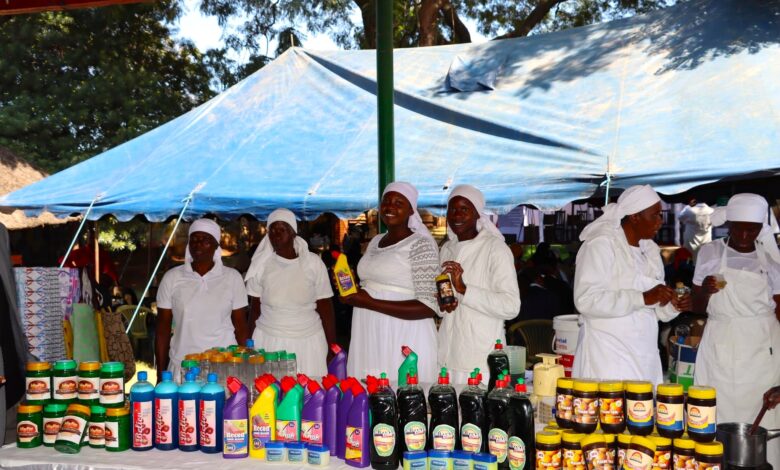Government’s Gender Equality Initiatives: Empowering Women in Zimbabwe

Empowering women in Zimbabwe is vital to ensure development all round. The nation is making significant efforts to achieve gender equality and empower women. This is through various initiatives and policies. The government recognises the importance of sustainable development that is inclusive, and people centred. Also, the National Gender Policy Implementation Strategy and Action Plan, launched in 2017, plays a crucial role in increasing stakeholders’ commitment to gender equality and women’s empowerment. This policy plan is a blueprint in use among other resources to provide gender equality in the nation.
Government Commitment to Empowering Women In Zimbabwe
The government of Zimbabwe revised and launched the National Gender Policy in 2017. Additionally, the policy provides a framework for implementing gender equality provisions in the constitution and subsequent laws and policies. It aims to address the need for gender equality and women’s empowerment in the country. Moreover, the National Gender Policy Implementation Strategy and Action Plan further strengthens coordination among various government ministries, UN agencies, and civil society organisations.
Thematic Areas for Empowering Women In Zimbabwe
Furthermore, the National Gender Policy Implementation Strategy and Action Plan defines systematic activities for ten thematic areas. These areas encompass key aspects of gender equality and women’s empowerment. Some of the thematic areas include Women’s Economic Empowerment. Here, promoting economic opportunities for women, including access to credit, entrepreneurship support and skills development is underway.
Also, there is focus on issues around Gender-Based Violence. It is vital to address and prevent all forms of gender-based violence. This includes domestic violence, sexual harassment and harmful cultural practices. Moreover, under this theme the above mentioned are addressed. Solutions to minimise these, with the aim of abolishing these issues is in progress.
On top of the above, Education and Training is in the policy. Here, ensuring equal access to quality education and training for girls and women is vital. Besides that, including initiatives to reduce gender disparities in education is important in the empowering of women in Zimbabwe.
Finally, another thematic area defined is the Political Participation and Decision-Making theme. Promoting women’s representation and participation in politics and decision-making processes at all levels is highlighted under this theme. Women in politics in Zimbabwe are few, even though the number is rising. Direct involvement of women representing and participating in politics will help immensely to bring balance to the political arena.
Multi-Stakeholder Approach
Zimbabwe’s approach to achieving gender equality and women’s empowerment involves collaboration. Moreover, collaboration among various stakeholders, including the government, UN agencies, civil society organisations, private sector, academia, and development partners. This multi-stakeholder approach ensures policy and institutional coherence, as well as the allocation of resources to advance gender equality. Additionally, the community also has a huge role to play to achieve this. Members of the community working together will make the job easier to improve the empowering of women in Zimbabwe.
Challenges and Progress
However, while progress has been made in Zimbabwe towards women’s empowerment and gender equality, challenges persist. Traditional societal norms and gender-based violence continue to hinder women’s empowerment efforts. However, initiatives such as the Zimbabwe Market Fair, which focused on empowering women and youth, have had a positive impact on enhancing capacity and economic opportunities for women.
Additionally, some of these challenges include lack of diverse perspectives in decision making. Those in power may resist opening up their spaces to gender equality. Especially in the African setting where patriarchy is still high. Another challenge includes extreme poverty. Women are on the lower end of the socio-economic status. This means that they have little to no resources to position themselves to reach gender equality. However, the government is advocating for economic empowerment of women.
Global Efforts and Partnerships
Zimbabwe’s gender equality initiatives align with the United Nations’ Sustainable Development Goals (SDGs), particularly Goal 5: Achieve gender equality and empower all women and girls. The United Nations, through organisations like UN Women and UNICEF, supports Zimbabwe’s efforts by providing technical and financial support for the development and implementation of gender equality strategies and policies. Moreover, these partnerships will help in empowering women in Zimbabwe
In conclusion, Zimbabwe’s government is committed to gender equality and women’s empowerment through its National Gender Policy Implementation Strategy and Action Plan. The multi-stakeholder approach, collaboration with various stakeholders, and alignment with global initiatives like the SDGs demonstrate Zimbabwe’s efforts to create a more inclusive and gender-equal society. While challenges persist, progress is being made towards empowering women and achieving gender equality in Zimbabwe.





